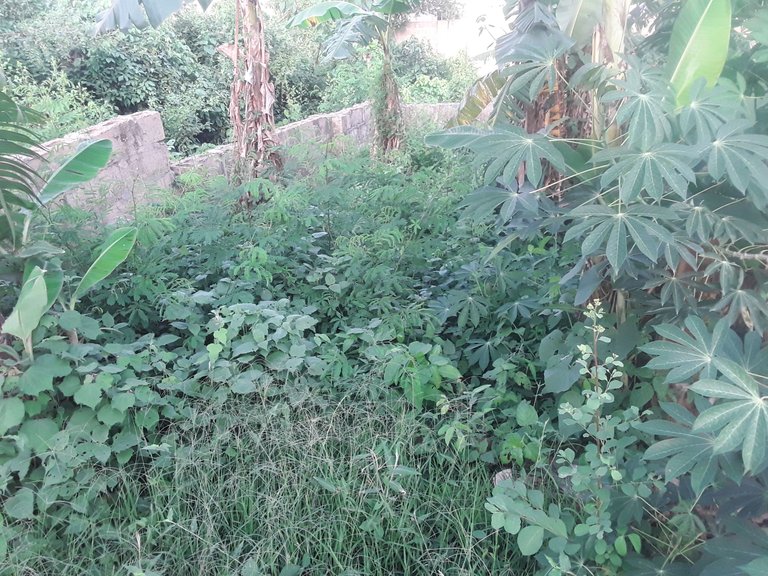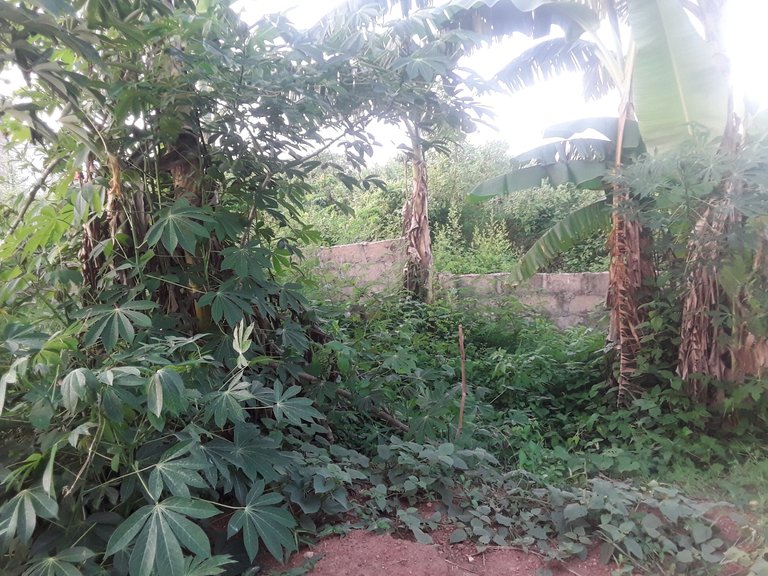As someone who is very conscious of his environment and whatever can predispose it to harm, using herbicides to tackle the issue of weeds, be it around houses or farms, is really not a ready-made option. However, due to some extreme constraints, I have found myself with no other option than to use this agrochemical a couple of times.
Why am I against the usage of herbicides to start with? I know some of you may be wondering. Even though I have explained my reasons in some of my publications here, I will repeat them for the benefit of those that have not been opportune to read these publications or are reading me for the first time.

There is no doubt that herbicides, and agrochemicals generally, seem to make tasks easier for everyone. However, their ecological effects cannot be ignored. I mean, who wouldn't prefer the option of just spraying their environment with chemicals for a few minutes to get rid of weeds instead of spending hours toiling and sweating to manually remove them?
In my own philosophy, anything that sounds too good to be true is most likely not true. In this case, the ecological effects dampen the ease and excitement that the use of herbicides offers. However, it takes someone who is ecologically conscious to acknowledge the negative effects of their usage.
When herbicides are sprayed, they not only affect the target weeds, but also have the capacity to affect other plants in the area, including beneficial plants that support the local ecosystem. The chemicals can be carried by the wind or runoff into nearby water sources, causing damage to aquatic life and potentially contaminating drinking water supplies. There have been various reports of herbicide poisoning in some parts of the world.
Moreover, depending on the chemical components, some herbicides usually have a long-lasting impact on the soil, affecting its composition and nutrient content. The excessive use of such herbicides often leads to the buildup of chemicals in the soil. The implication is that other plants or even animals can bioaccumulate such chemicals in their tissues and organs. The end result is a vicious cycle of ecological damage, potentially causing long-term harm to the environment.
Furthermore, herbicide usage has the potential to also harm beneficial insects, such as bees, butterflies, and other pollinators. These insects play a crucial role in the pollination of plants, helping to ensure the growth and reproduction of various plant species. Herbicides have been reported to have the capacity to destroy the habitats of these insects, causing a ripple effect that can affect the entire ecosystem and how it functions.
Armed with the damages that herbicide usage can inflict on the environment, when left with no other choice, an ecologist like me is usually faced with another headache of whether to use systemic or contact herbicides. On one hand, contact herbicides are herbicides that only affect the part of the plant that they come in contact with. They are generally fast-acting and effective on young, actively growing plants. However, they are not effective on established or perennial weeds because they only affect the parts of the plant that they directly contact.
On the other hand, systemic herbicides are absorbed by the plant and transported to other parts, including the roots. They are effective on established or perennial weeds because they are able to reach and kill the entire plant, including the roots. Systemic herbicides are generally slower-acting than contact herbicides but provide longer-lasting results.

Considering the potential ecological impact of herbicides that have been highlighted, it is logical to conclude that contact herbicides would be the lesser of the two evils, albeit this also somewhat limits their effectiveness at combating weeds. In other words, contact herbicides may not serve in all situations, especially when perennial weeds are involved.
As an ecologist with a small-scale farm, I am currently faced with the challenge that only a systemic herbicide can tackle. I have somehow been limited to little physical activities due to some illnesses and weeds are gradually overtaking the farm. These weeds are well established and using a contact herbicide with never be effective.
Will you go ahead with systemic herbicide and damn the potential implications if you were in my shoes?
I will be in the comment section to read and reply to your opinions.
just few days away from being eligible to compete for $10k worth of prize on hive.
Join the Adoption campaign coming up on the 30th of this month
Click on the link below to sign up for the contest and if you have signed up before, kindly tell others about it.
Adoption campaign

Already joined. Hope we win for this community
Hi, is that cassava on the left side of the photo?
Yes, it is. One of the cassava stems I planted last year. Should be due for harvest later this year, I think.
Show us when you harvested them (^_^)
Thanks for your contribution to the STEMsocial community. Feel free to join us on discord to get to know the rest of us!
Please consider delegating to the @stemsocial account (85% of the curation rewards are returned).
You may also include @stemsocial as a beneficiary of the rewards of this post to get a stronger support.